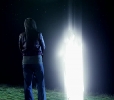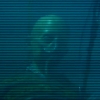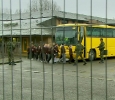Children of Earth: Days Three to Five
Well, look who’s a lazy boy then. Where was I? Oh, right, I was on a skiing holiday. Where was I before that? Oh, right, Torchwood.
With three more episodes, ‘Children of Earth’ comes to an end. And it’s an unexpected one in a few ways. It’s uncompromising. It’s surprisingly final. It’s shockingly bleak. It’s still not quite what I thought Torchwood was, but I can’t say I’m not happy that it is.
After the destruction of the hub, Torchwood have finally regrouped, but still unhappily lack much in the way of leverage. And while they claw their way back onto the political playing field, the 456 explain their demands and motives to the British Government, as the latest in a long line of disappointing fictional Prime Ministers makes the most logical and morally abhorrent choice available to him.
If the defining idea behind Doctor Who is that of an amazing alien wandering into an impossible situation and finding an ingenious, unforseen solution, then Torchwood this year is really taking the time to look at what would happen if the Doctor didn’t turn up. It’s in this area that the five episode format has really helped. The relentless slide towards despair and hopelessness would have felt rushed, even perhaps in a two-parter. But with five episodes, the consequences of horrible political decisions feel terrifyingly believable. The half-revealed 456 may be a very disturbing thing, but there’s no question that the scariest moment in ‘Children of Earth’ is when the army come to the suburbs to take the children away.
Two characters really drive the plot in the later part of the series: Captain Jack and Mr Frobisher. As expected after the first episodes, it’s Peter Capaldi who’s the star of the show. The befuddled, awkward Frobisher is just as Bridget Spears describes him; a good man. But he’s but just a little too ambitious, and just a little too devoted to notice the horrific position he’s been maneuvered into until it’s too late. Capaldi’s completely convincing in a role that could have easily been a cartoonishly weedy public servant. His shocking end gives the narrative back to the brooding Jack, who gets to prove himself the better man, in a way.
In the past I’ve not been a huge fan of John Barrowman’s emotional acting, but he plays it pretty perfectly this time around. It’s easy to forget that the good Captain has gone through some amazing crap in recent times. He’s lived through the twentieth century, he’s been buried through the preceding 19 centuries, he’s been imprisoned and tortured by the Master for three years. And things don’t get much better for him as he deals with the 456.
Forcing characters to choose between children and the greater good sounds a bit contrived at first glance, but there’s plenty of time in ‘Children of Earth’ to really flesh this out, too. What’s the right thing to do? Defending your own children over those of others? Giving up someone else’s children for the sake of the world? Giving up your own children? Pity poor Jack; no matter whether he cooperates or fights the 456, he runs into the same horrible choices. Of course, much more of your pity should probably be reserved for those around him.
Which brings us to death. It’s no stranger to Torchwood. The first episode killed off a team member, and the OHS issues at the Hub haven’t improved much since then. People drop like flies in ‘Children of Earth’; no one is sacred, and it’s refreshingly bleak and honest to the situation they find themselves in. But when it comes to who dies and who lives, Captain Subtext is always lingering to spot patterns. Meet me in the footnote, where I’ll discuss one controversial spoilery issue.1
As I watched Torchwood‘s third series, I couldn’t help but be reminded of The X-Files labyrinthine alien plotline. While in many ways The X-Files is the superior show, it’s tremendously satisfying to see the themes and ideas behind it actually put in a story that has a beginning, middle and end. And it’s completely unexpected to have it done by the usually hilariously off-kilter Torchwood. A year ago I was totally indifferent to the show; suddenly I’m very keen for a fourth series. That’s a pretty impressive turnaround in five episodes.
- OK. It’s team death number four in this story, and people are grumpy because this time it’s their favourite character. Fair enough. Oh no, wait, they’re not just grumpy, they’re angry, because Ianto was gay, mostly, and you can’t kill gay cast members, not even mostly gay ones. I agree that if you watched a three season series and found that most people who died were gay, there’d be a disturbing subtext lurking. It’s clearly not the case in ‘Children of Earth’, though — people die all over the place and seem nicely divided in age group and sexuality. And it’s certainly an odd thing to level at Torchwood in general; sure, Gwen is heterosexual and gets to live and breed, but Owen and Tosh, both generally straight, didn’t even get to snog properly. In comparison to them, Jack and Ianto have had an eminently successful relationship. What have we learned here? I’m not really sure, except perhaps never to be surprised by crazy fans and their tremendous capacity for passionate self-importance. ↩
Don't. — Ianto and Jack



Andy
January 31st, 2010 at 1:48 pm
The government in episode 3 was surprisingly eager to send the children away. I know they’re the bad guys, but a bit of umming and ahhing would have been nice. Why are they so keen to surrender?
It was good to see Torchwood regroup and swing into action in episode 4, but they really should have waited for one more episode if they don’t want their plan to balls up.